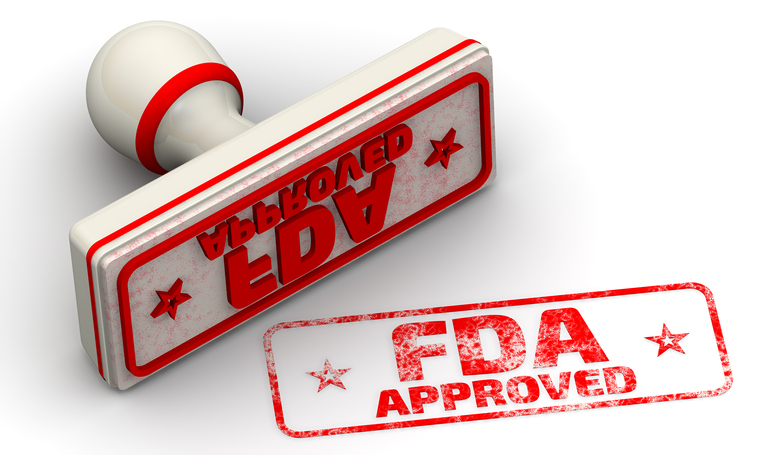
The most serious cases of lymphoma can be treated with a drug made by engineering a patient’s immune cells to target tumors. But CAR-T therapy doesn’t work in all cases. In securing its first FDA drug approval, ADC Therapeutics is now able to offer such patients another treatment option.
The agency on Friday approved ADC drug loncastuximab tesirine for treating diffuse large B-cell lymphoma (DLBCL) in adults whose cancer has relapsed or has failed to respond to two or more earlier lines of systemic therapy. Lausanne, Switzerland-based ADC will market the drug under the name “Zynlonta.”
DLBCL is a type of non-Hodgkin lymphoma, a cancer of white blood cells called lymphocytes. It’s the most common of this type of cancer in the U.S., accounting for about 22% of new cases of B-cell non-Hodgkin lymphoma diagnosed in the country, according to the Lymphoma Research Foundation.
Zynlonta is a type of drug called an antibody drug conjugate. Antibody drug conjugates have won FDA approval for several cancers, but ADC’s drug is the first of this type of therapy approved for DLBCL. These therapies link a payload of cancer-toxic compounds to an antibody that targets tumors. The targeting effect of the antibody is meant to deliver a direct strike to tumors while sparing healthy tissue. Zynlonta is engineered to target CD19, a protein on the surface of cancer cells. CAR-T therapies approved for DLBCL also target this protein but Zynlonta’s clinical trials included patients whose cancer failed to respond to CAR-T therapy; ADC says its drug addresses the unmet need for patients whose cancer has failed to respond to CAR-T therapy or a stem cell transplant.
The accelerated FDA approval of Zynlonta, which came about month earlier than the target date for a decision, was based on the results of an open-label Phase 2 study enrolling 145 adults with DLBCL. Participants were given the intravenously infused drug over the course of 30 minutes on the first day of each three-week cycle at a dose of 150 micrograms per kilogram of a patient’s weight. That dose was given for two cycles. The dose was then lowered to 75 micrograms per kilogram of weight for subsequent cycles for up to one year, or until the disease progressed or the drug’s toxicity became unacceptable.
The company reported that 70 of the 145 patients responded to treatment, translating to an overall response rate of 48.3%. Of those responders, half of them showed a complete response to treatment for a complete response rate of 24.1%. The median time to a response to treatment was 1.3 months. For the 70 responders to treatment, the median duration of their response was 10.3 months.
The most common serious adverse reactions to treatment were neutropenia, which is an abnormally low level a type of white blood cells called neutrophils; thrombocytopenia, which is an abnormally low level of platelets; an increase in liver enzymes; and anemia. Those risks are noted on the drug’s label, but not in a black box warning, which is the most serious FDA warning.
The first two FDA-approved CAR-T therapies, Novartis’s Kymriah and Gilead Sciences’ Yescarta, both target CD19. In February, Bristol Myers Squibb won approval for its CD19-targeting CAR-T therapy now marketed as Breyanzi. Those therapies are made in a lengthy, multi-step process that involves harvesting a patient’s T cells, engineering them in a lab, multiplying those cells, and then infusing them back into the patient.
Other companies are also aiming to provide alternatives to CAR-T. Last year, MorphoSys won FDA approval for tafasitamab (Monjuvi), an antibody drug for DLBCL that targets CD19. That drug is marketed under a partnership with Incyte. Last year, Artiva Biotherapeutics launched with a $78 million Series A round of funding to support its development of natural killer cell therapies, including a program focused on treating blood cancers that express CD19.
According to an investor presentation, ADC expects to launch Zynlonta this week. It will carry a wholesale price of $23,500 per 10 mg vial, before any discounts or rebates. ADC aims to expand the use of its lead drug. A Phase 2 trial evaluating it in combination with AbbVie’s cancer drug ibrutinib is ongoing in patients with DLBCL and mantle cell lymphoma. In addition, the company is testing Zynlonta in combination with rituximab, a Phase 3 clinical trial that could support use of the drug as a second-line treatment for DLBCL patients who are not eligible for a stem cell transplant. ADC is also looking to go beyond DLBCL. A pivotal Phase 2 study in follicular lymphoma is underway.
The ADC pipeline includes another antibody drug conjugate, camidanlumab tesirine. That drug, which targets the cancer protein CD25, is in a pivotal Phase 2 study in Hodgkin lymphoma. The company has said that interim data from this study are expected in the first half of this year.
Approval of Zynlonta comes just shy of one year after ADC went public, raising $233 million to prepare for commercialization of its lead drug candidate. As of the end of 2020, the company reported having $439.2 million in cash.
Photo: Waldemarus, Getty Images












